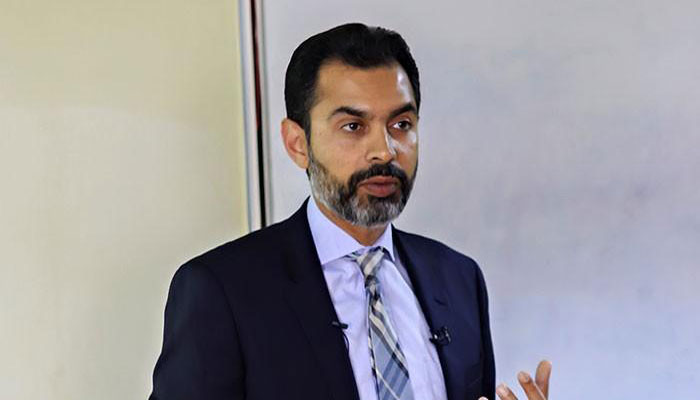May 7, 2019 (MLN): After the appointment of a new Finance Minister last month, the current government is undergoing a radical transformation of its economic team to address the problems currently facing the country. SBP Governor Tariq Bajwa has been replaced by a relatively young but promising economist, Dr. Reza Baqir, a senior resident representative of the IMF in Egypt.
Meanwhile, Chairman FBR Jahanzeb Khan has also been removed apparently because of lower than expected tax collections in current fiscal year.
These major decisions by the government have come at a very critical juncture when the government is in final stages of discussions with an IMF team to secure a financial package, considered vital to stave off balance of payment crisis.
As the ongoing staff level talks with the IMF team are underway, they will soon be transformed into a new IMF program. However, by observing Dr. Baqir's time in Egypt, which coincided with an IMF program in that country with some trepidation, are causing fears within the local investors.
In November 2016, the executive board of the IMF reached an agreement with the government of Egypt to provide a three year $12-billion loan in the form of an Extended Fund Facility (EFF) arrangement which supports long-term structural adjustments. Intended to remedy the country’s economic woes, the agreement pushed classic austerity-based policies in Egypt, which aggravated poverty and inequality on a large scale.
At the end of CY15, Egypt’s Central bank interest rate was 9.25%. However, before disbursement of IMF program funds, Central bank of Egypt increased interest rates up to 14.75%. It went up to 18.75% in November 2017. By the time of last disbursement in Feb 2019, the Central bank had reduced key interest rate to 15.75%.
The inflation rate remained stable and low during the period between 2013 and 2015, with an average inflation rate of 6.9% in 2015. In November 2016, the inflation number reached the level of 11.7% with extra ordinary increase in December 2016, to close the year 2016 at inflation rate of 23.2% and 2017 at 31.8% due to Increase in electricity/fuel prices, the value-added tax (VAT) and passing through of exchange rate depreciation.
No extra ordinary currency devaluation was experienced in 2014, 2015 and during 11 months of 2016. However, in December 2016 Exchange rate shot up to EGP 17.9x from 8.5x in Nov 2016.
Raza Jafri, Chief Financial Analyst at Intermarket Securities in its research report highlighted that, this short-lived pain, however, is now leading Egypt to a sustainably stronger economy as the current inflation rate in Egypt stands at 14.2%. Furthermore, no further devaluation has been observed till date as exchange rate remained stable at EGP 17.9x in CY17, CY18 and YTD CY19.
In addition, the recent April, 2019 report of the IMF revealed that the Egypt’s macroeconomic situation has improved markedly since the initiation of the authorities' reform programme in November 2016. As per the IMF projections, Egypt’s June 2019 CPI is expected to stand at 11%, fiscal deficit at 7.9% of GDP, a 9-year low, and current account deficit at 2.5% of GDP.
By comparing Pakistan’s current economic situation with Egypt in 2016, the outcomes seem to be much better. In 2015-16, the Egypt’s fiscal deficit as a percent of GDP was 12.5% whereas, in Pakistan, the austerity measures taken over the previous 15 months are already having an impact e.g. the current account deficit has fallen to an annualized 2.3% of GDP in January-March 2019 against 5.8% of GDP in FY18.
The unemployment rate in Egypt stands at 9.9%, which is higher than 5.7% in Pakistan. Egyptian exports have reached $23.3 billion mark, whereas Pakistani economic experts are hoping that the country’s exports would reach $27 billion mark by June 30 this year.
In short, Pakistan’s current economic situation is far better than the Egypt when the country went to IMF for economic assistance. Therefore, it is expected that unlike the Egypt model, further structural adjustments and reforms during IMF period are likely to remain robust and less agonizing for Pakistan.
Copyright Mettis Link News
27865








